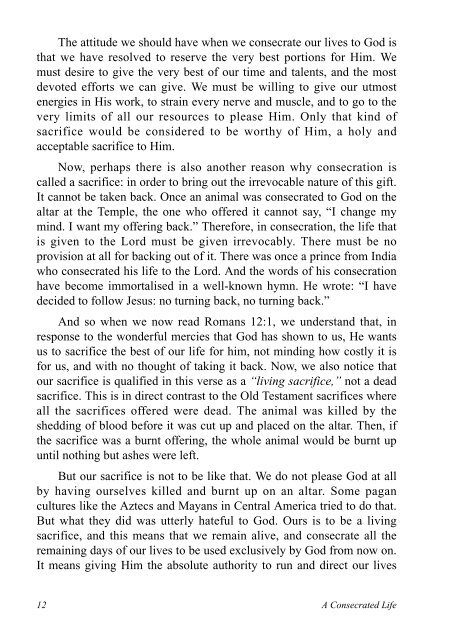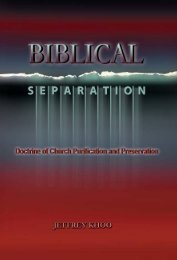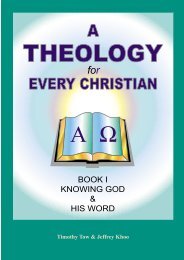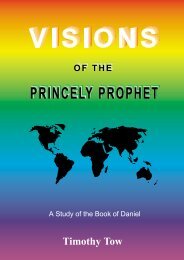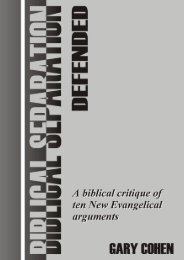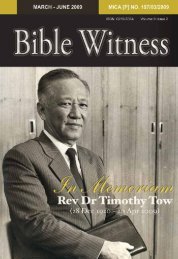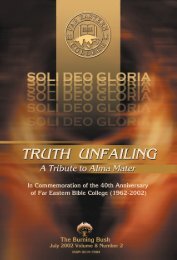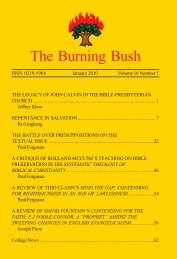Chapter 1 A Consecrated Life - Far Eastern Bible College
Chapter 1 A Consecrated Life - Far Eastern Bible College
Chapter 1 A Consecrated Life - Far Eastern Bible College
You also want an ePaper? Increase the reach of your titles
YUMPU automatically turns print PDFs into web optimized ePapers that Google loves.
The attitude we should have when we consecrate our lives to God is<br />
that we have resolved to reserve the very best portions for Him. We<br />
must desire to give the very best of our time and talents, and the most<br />
devoted efforts we can give. We must be willing to give our utmost<br />
energies in His work, to strain every nerve and muscle, and to go to the<br />
very limits of all our resources to please Him. Only that kind of<br />
sacrifice would be considered to be worthy of Him, a holy and<br />
acceptable sacrifice to Him.<br />
Now, perhaps there is also another reason why consecration is<br />
called a sacrifice: in order to bring out the irrevocable nature of this gift.<br />
It cannot be taken back. Once an animal was consecrated to God on the<br />
altar at the Temple, the one who offered it cannot say, “I change my<br />
mind. I want my offering back.” Therefore, in consecration, the life that<br />
is given to the Lord must be given irrevocably. There must be no<br />
provision at all for backing out of it. There was once a prince from India<br />
who consecrated his life to the Lord. And the words of his consecration<br />
have become immortalised in a well-known hymn. He wrote: “I have<br />
decided to follow Jesus: no turning back, no turning back.”<br />
And so when we now read Romans 12:1, we understand that, in<br />
response to the wonderful mercies that God has shown to us, He wants<br />
us to sacrifice the best of our life for him, not minding how costly it is<br />
for us, and with no thought of taking it back. Now, we also notice that<br />
our sacrifice is qualified in this verse as a “living sacrifice,” not a dead<br />
sacrifice. This is in direct contrast to the Old Testament sacrifices where<br />
all the sacrifices offered were dead. The animal was killed by the<br />
shedding of blood before it was cut up and placed on the altar. Then, if<br />
the sacrifice was a burnt offering, the whole animal would be burnt up<br />
until nothing but ashes were left.<br />
But our sacrifice is not to be like that. We do not please God at all<br />
by having ourselves killed and burnt up on an altar. Some pagan<br />
cultures like the Aztecs and Mayans in Central America tried to do that.<br />
But what they did was utterly hateful to God. Ours is to be a living<br />
sacrifice, and this means that we remain alive, and consecrate all the<br />
remaining days of our lives to be used exclusively by God from now on.<br />
It means giving Him the absolute authority to run and direct our lives<br />
12 A <strong>Consecrated</strong> <strong>Life</strong>


